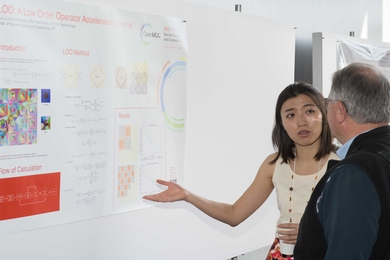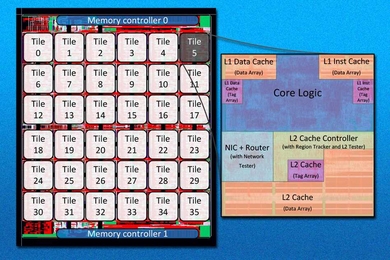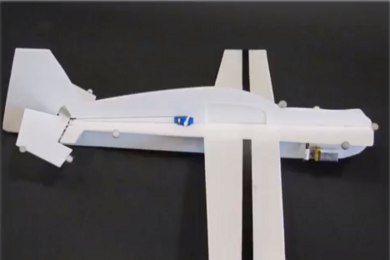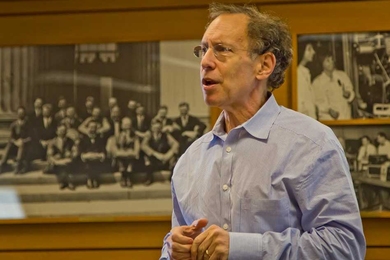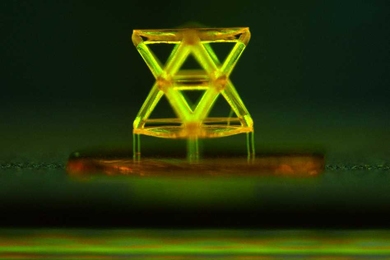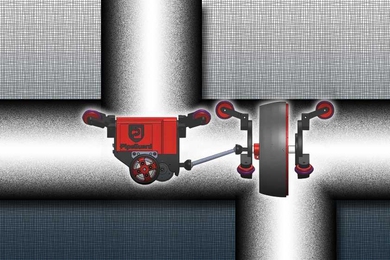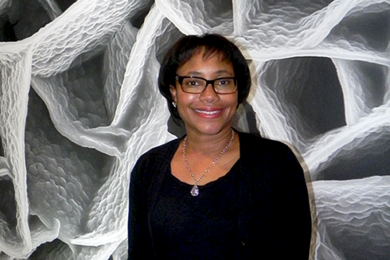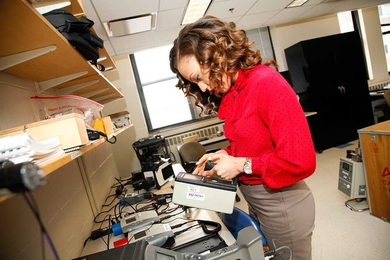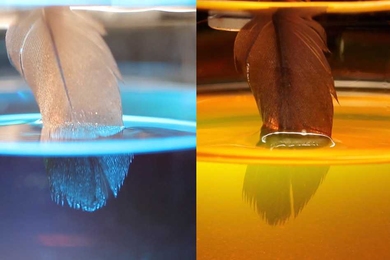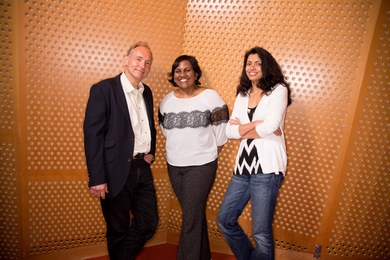New particle-sorting method breaks speed records
Discovery could lead to new ways of detecting cancer cells or purifying contaminated water.
Morphable surfaces could cut air resistance
Adding golf ball-like dimples to surfaces could reduce drag and improve efficiency of vehicles.
Researchers unveil experimental 36-core chip
Design lets chip manage local memory stores efficiently using an Internet-style communication network.
A charging solution for delivery drones: Take after our feathered friends?
New CSAIL research suggests a future where UAVs can recharge their batteries by perching on power lines.
Robert Langer receives Kyoto Prize
Institute Professor cited as "a founder of the field of tissue engineering."
Can we see the arrow of time?
Algorithm can determine, with 80 percent accuracy, whether video is running forward or backward.
New ultrastiff, ultralight material developed
Nanostructured material based on repeating microscopic units has record-breaking stiffness at low density.
A new way to detect leaks in pipes
Self-propelled robotic device can speed through pipes, pinpointing leaks more accurately than existing methods.
Faculty highlight: Paula Hammond
Engineering tiny paths to cancer treatment, bone regrowth, and wound healing, Paula Hammond serves as an exemplary researcher-educator within the MIT community.
An unexpected path to nuclear engineering
With ample family support, PhD student Mareena Robinson focuses on research in nuclear security.
How cormorants emerge dry after deep dives
Study reveals how shape and chemistry let feathers shed water after emerging from great depths.
Diagnosing “broken" buildings to make them greener
Startup’s software detects inefficient equipment in facilities — saving energy, time, and money.
